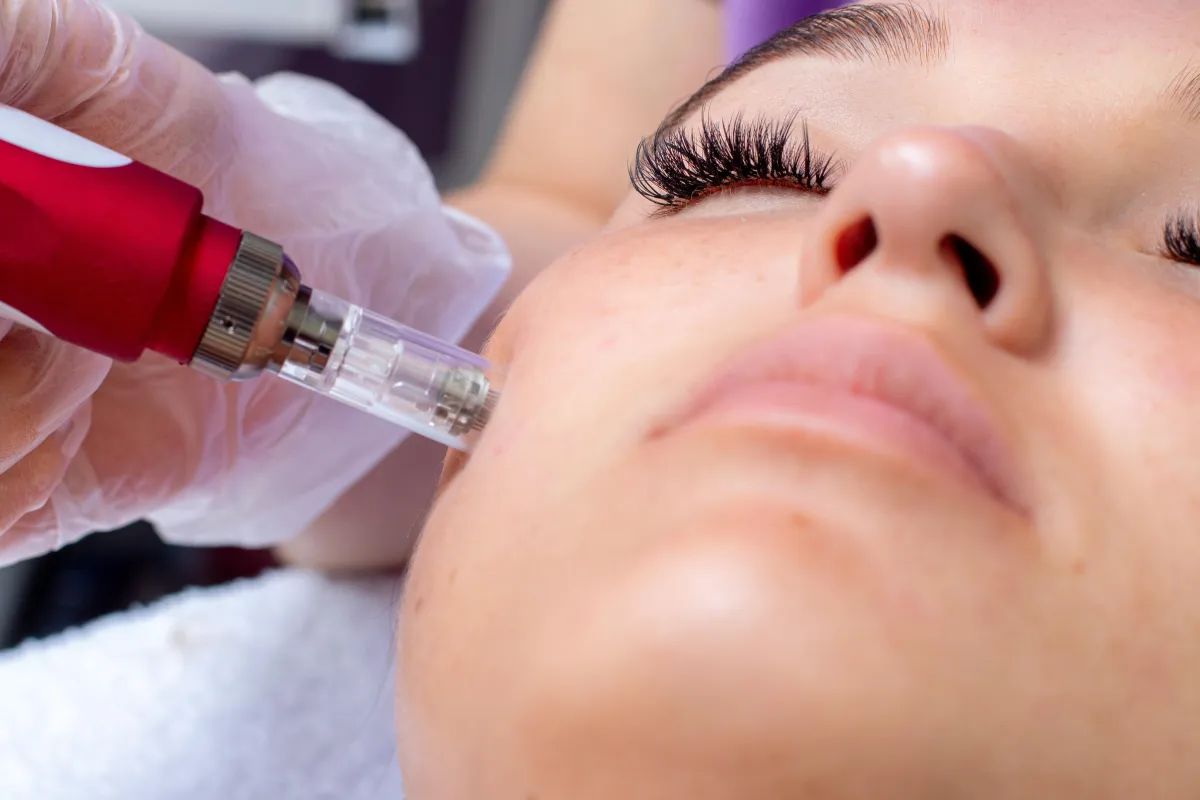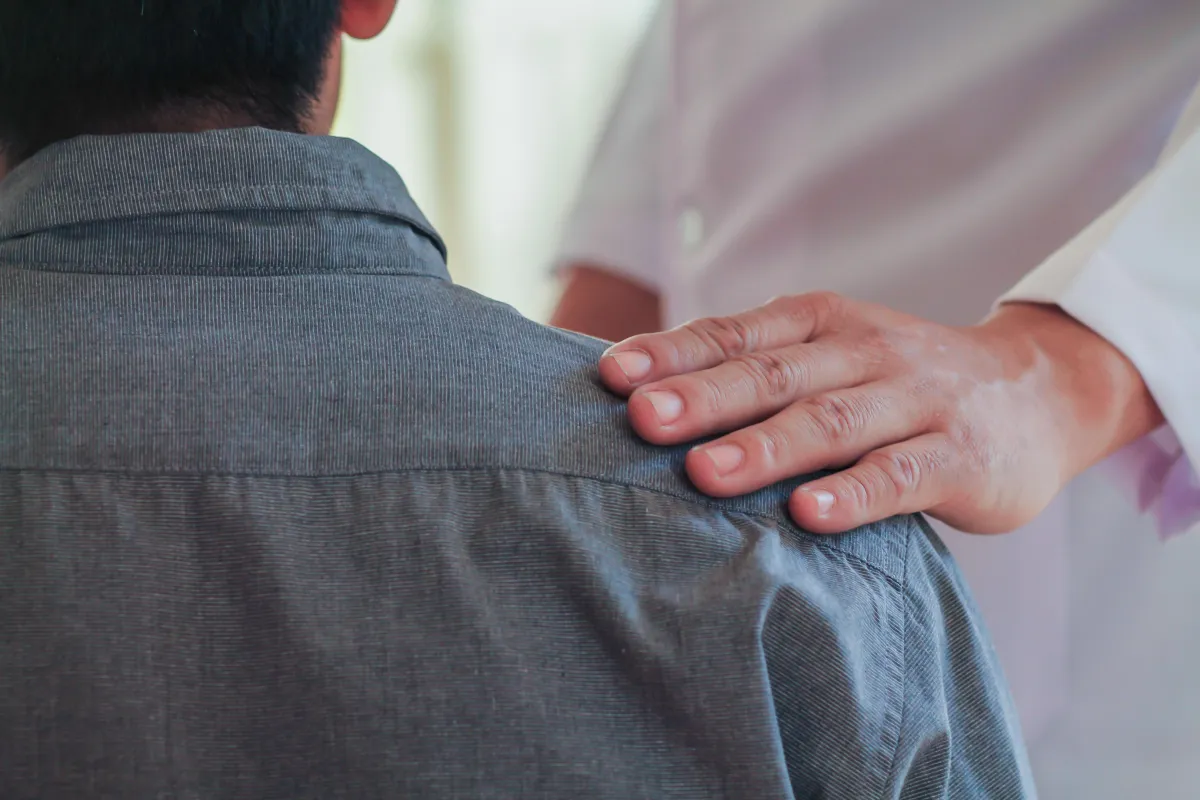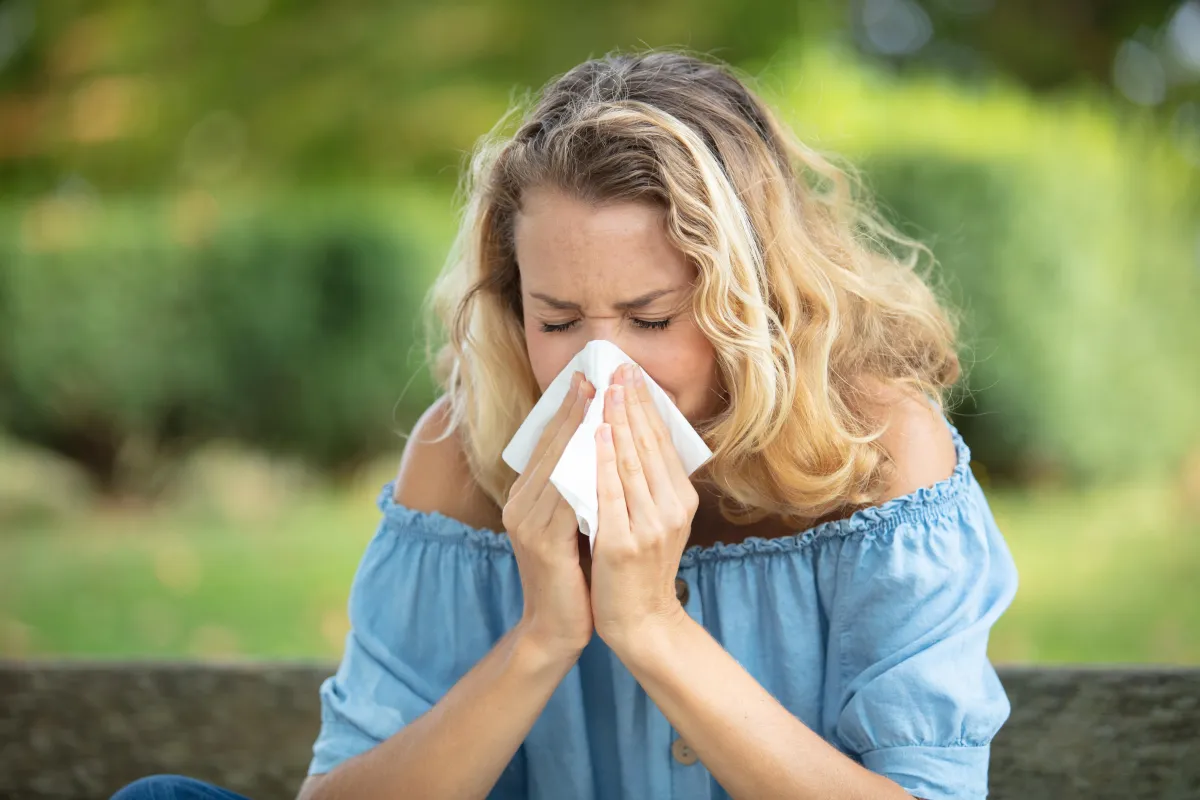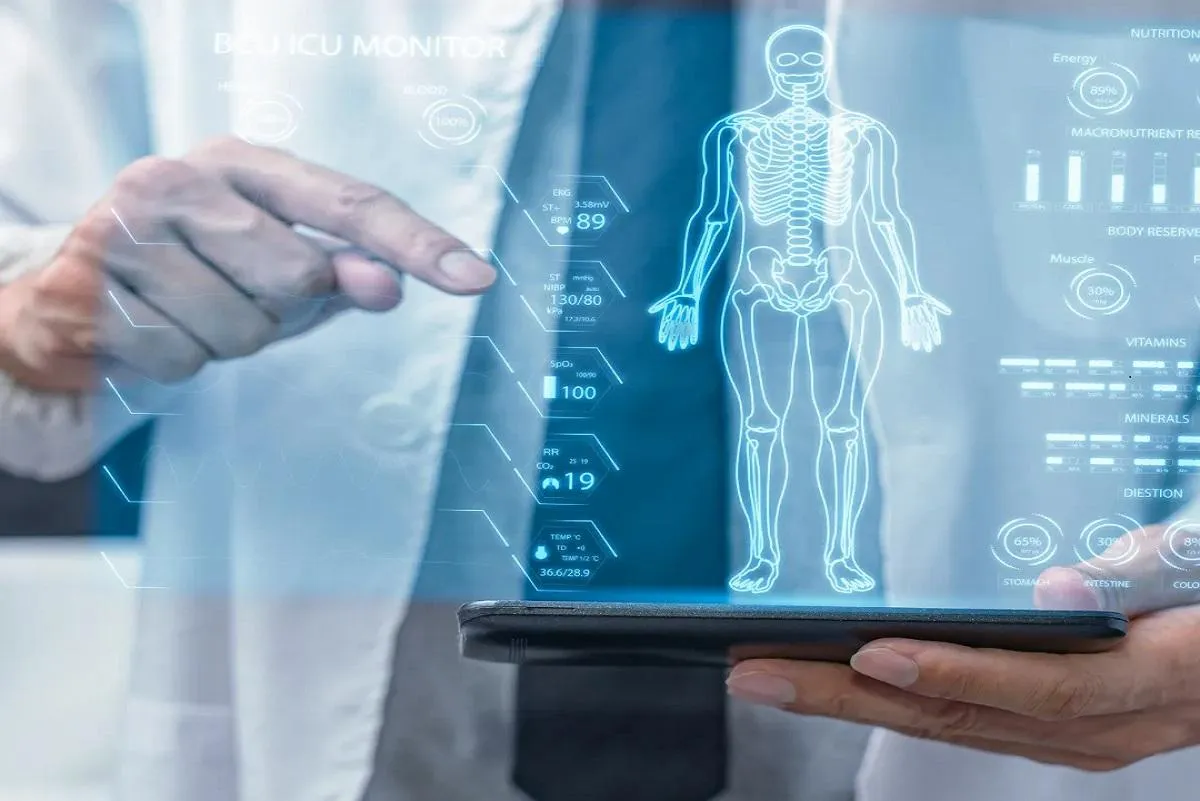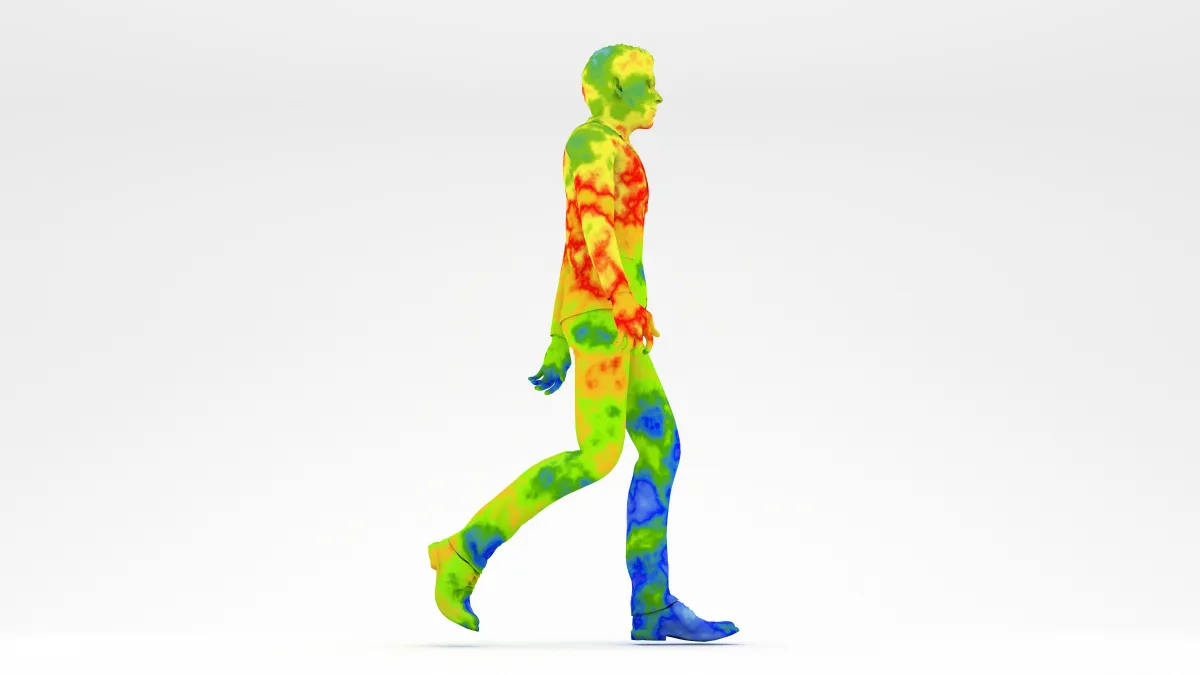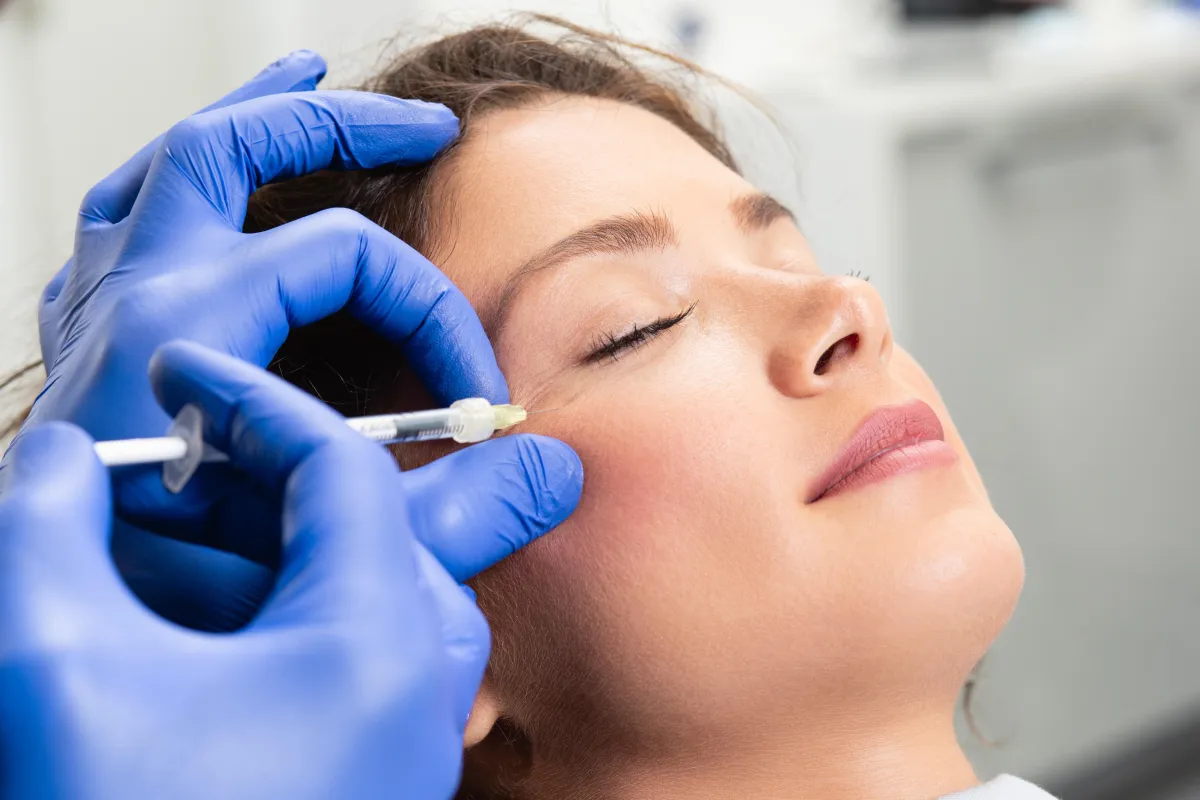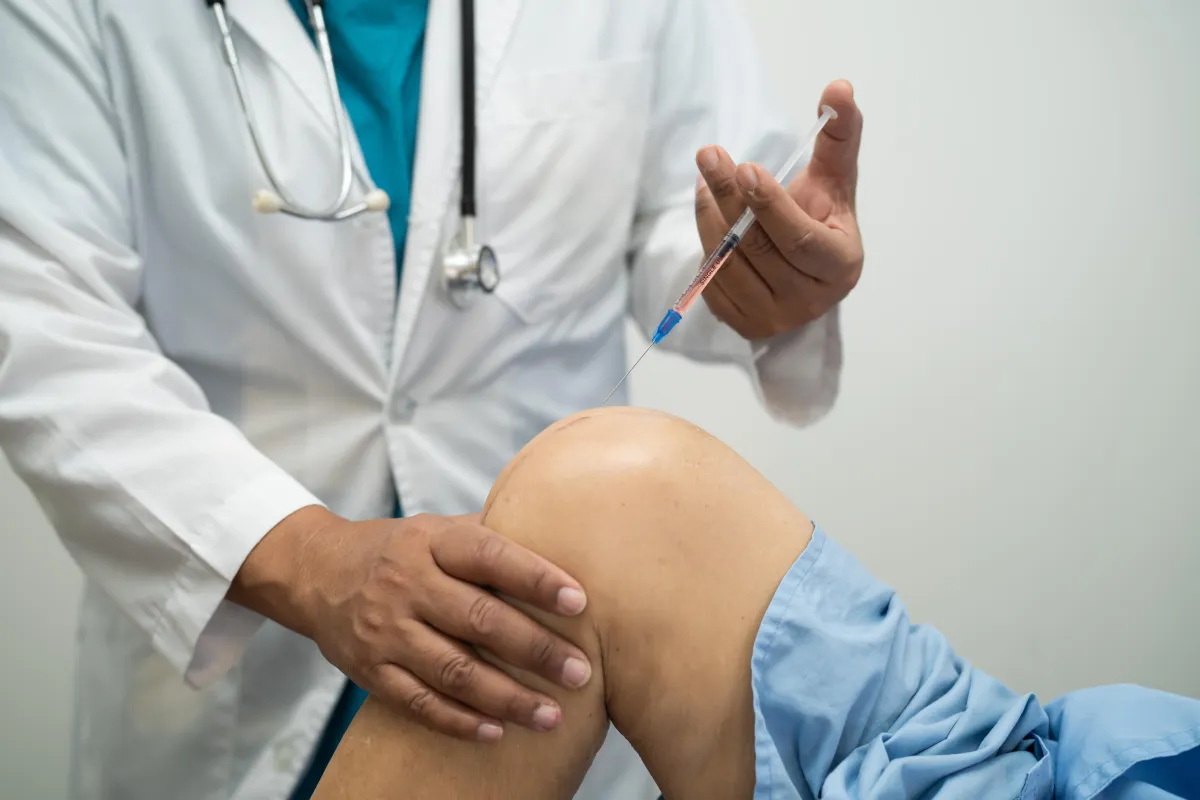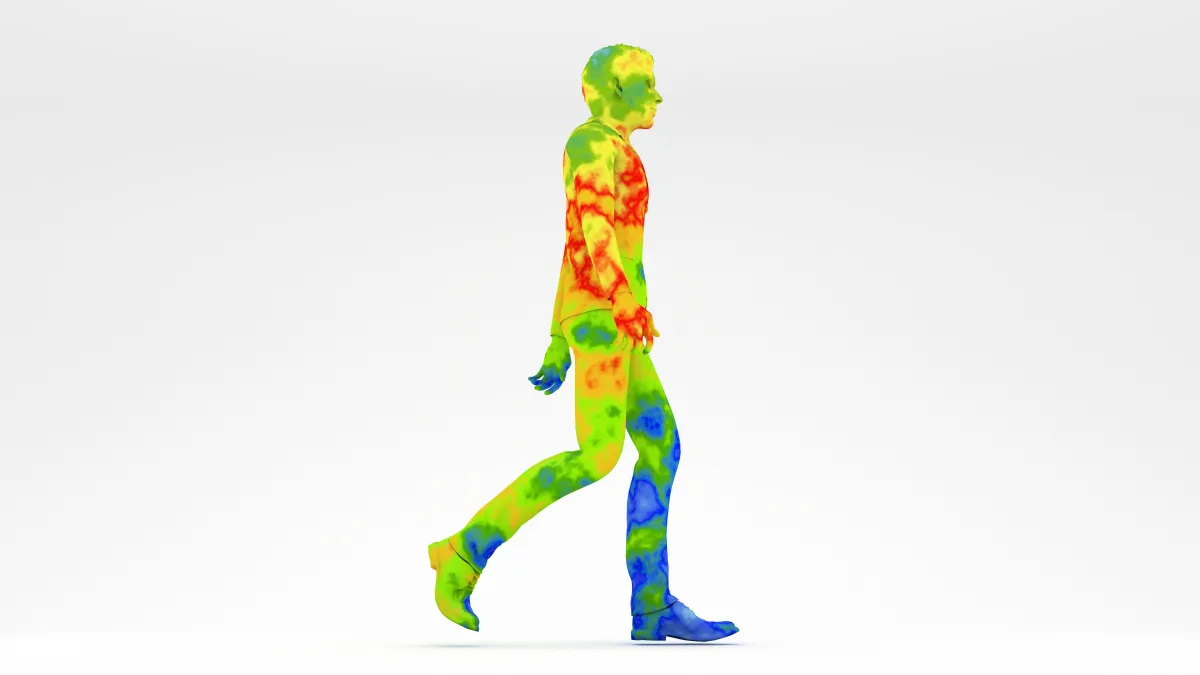Welcome to the Chambers Clinic Blog
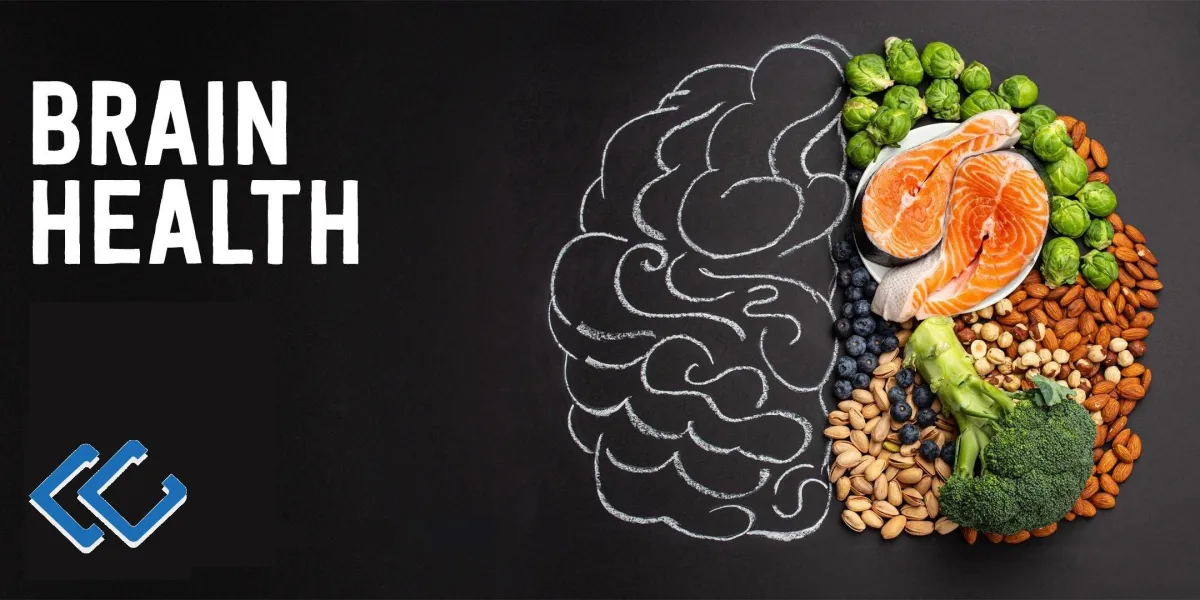
Brain Health and Nutrition - Taking a Hit
Dr. Psenka recently wrote this article for Cowboy Life Network. The power of medical prevention through nutrition is truly amazing.
Not long ago a good friend of mine fell off her horse while trail riding in Arizona. When she fell onto the hard desert ground, she luckily avoided smacking her head but did manage to break her wrist. After a few months of discomfort, surgery, and the addition of some new stainless-steel hardware she’s almost back to 100%. Another friend recently suffered a severely broken foot after she was accidentally stepped on by her horse. After several months of wearing a fracture boot she’s now back in the saddle.
It seems that people who ride horses and those who live the ranch and rodeo lifestyle seem to be prone to getting hurt.

Interestingly, about a year ago the Kansas Journal of Medicine published a article describing the injuries sustained in rodeo events. The research looked at the number of people who presented to a level-one trauma center after being injured in a rodeo event. 70 people were identified; half were injured by a rodeo animal and the other half were injured after taking a fall. Over 50% of those hurt sustained head injuries, making it the most frequent type of rodeo injury.
Concussions and traumatic brain injuries (TBI) are what to worry about whenever someone takes a hard hit to the head. Our brains are suspended in our skull by a layer of fluid called cerebrospinal fluid. This fluid acts like a buffer to prevent our brains from getting damaged by slamming into the skull when we experience rapid acceleration, deceleration, or unexpectedly meet the ground too fast. The term concussion refers to a mild type of TBI. Moderate and severe TBI’s can also be experienced. Symptoms of concussion include nausea, confusion, dizziness, headache, visual disturbances, and light sensitivity. “Red Flag” symptoms that might indicate a more severe TBI include slurred speech, vomiting, seizures, and loss of consciousness.

Lots of people often approach injuries with a “get up, dust off, and get right back to it” attitude. This approach is a risky move for head injuries. Whenever dealing with a head injury safety is the best policy. When in doubt, sit it out and get checked out. It’s not just the initial trauma that is concerning, as experiencing a TBI can cause long-term problems. A condition known as Post Concussive Syndrome affects between 24-84% of people who experience TBI and can last for several months or more. Further, research has suggested that up to a staggering 75% of people who experience TBI develop major depressive disorder.
With that all being said, one might ask about steps that could be taken immediately after sustaining a concussion to minimize the chance of long-term adverse effects. One might also wonder if there is anything that a person could do from a preventative standpoint, knowing that sooner or later they might hit the ground.
The answer to those questions is yes, there are a few things a person can do to facilitate faster more complete healing and to help prevent problems at the time of impact.

Many people are familiar with fish oil and have heard they contain omega-3 fatty acids. Research has shown that when fish oil is supplemented within 24–120 hours after a TBI there was accelerated symptom resolution and a faster safe return to activity. Further, DHA and EPA , which are the specific fatty acids found in fish oil, can benefit people by supporting performance, recovery, and reducing illness and injury risks. DHA, aka docosahexaenoic acid, specifically makes up 97% of all fatty acids found in the brain structure, and it plays a vital role in brain development, cognitive functioning, and potential brain recovery. Unfortunately, dietary intakes are low, especially those in Westernized countries and athlete groups, resulting in low DHA levels in the brain, and a greater risk of worsened response and further depletion in the event of a TBI. Low DHA availability will subsequently result in reduced neural protection and cognitive recovery and repair support after sustaining a TBI.
Omega-3's also have potent anti-inflammatory action and can help treat and prevent depression, making this a particularly important supplement from a prevention standpoint. Cold water fish and seafood as well as unroasted nuts and seeds are good dietary sources of omega-3's. Fish oil supplements are readily available, but it’s important to know that quality varies. Cheapest isn’t likely the best. A product with a standardized amount of EPA and DHA is best and a good adult dose is around 2000mg per day.

Vitamin D is another very important nutrient for brain health. Vitamin D plays an important role in neurodevelopment, neuroprotection, neurofunction and overall brain health. Adequate serum vitamin D levels are important especially for those who encounter TBI. Like DHA levels, vitamin D deficiency is common. One study found that 94.8% of those experiencing a TBI were severely deficient. A vitamin D deficiency places patients at risk for poorer recovery after a TBI, leading to unregulated inflammatory and immune responses, reduced neuroprotection and increased risk of cell death. Providing vitamin D supplementation to deficient individuals with acute TBI led to improved outcomes by reducing inflammation and damage resulting from the injury. Additionally, vitamin D deficiency can negatively affect a person’s testosterone level, increasing the chance of developing post-traumatic stress disorder and chronic fatigue post-TBI. The take home message is that having adequate vitamin D levels can help minimize the side effects of TBI.
Mushrooms, liver, and oysters are good sources of vitamin D. If those items don’t make it on the menu too often, a vitamin D supplement can help ensure healthy levels. Our bodies can also convert the sun’s ultraviolet radiation into vitamin D, but risking sunburn and skin cancer makes taking a supplement a good bet. It is a good idea to have your vitamin D levels checked with your annual medical exam. If your doctor isn’t doing this, then ask them to test it or find a new doctor. It’s too important to leave out.

Another nutrient that has the potential to treat and even possibly prevent serious adverse effects of TBI is magnesium. Magnesium is a vital mineral that is responsible for many cellular and enzymatic functions. Following a TBI, magnesium levels acutely fall in the brain, and this decline in magnesium has been found to increase a persons’ risk of prolonged symptomology and poorer recovery. Therefore, taking magnesium may replenish levels in the brain following an acute TBI and lead to symptom improvements for patients
It has been estimated that roughly 50% of Americans are deficient in magnesium. Poor dietary choices are the most likely cause of this deficiency. To make matters worse, low magnesium levels can make vitamin D ineffective. Replenishing magnesium levels is fairly easy to do, pumpkin seeds, green vegetables, eggs, brown rice, and cashews all contain good levels of magnesium. The current RDA for magnesium is between 320-420mg, although many believe the optimal intake is a few hundred mg’s higher.
While it seems that those who actively enjoy the cowboy and rodeo lifestyle might have a slightly higher risk of head injury, medical science is providing new ideas about treatment and prevention. Nutrients such as omega-3 fatty acids found in fish oil, vitamin D3 from mushrooms and sunlight, and magnesium from pumpkin seeds and green vegetables can not only improve recovery but may also prevent serious adverse outcomes of TBI’s. Additionally, getting in more of these dietary nutrients is associated with many other health advantages as well, such as lowering the risk of heart disease and preventing cancer. It’s always good practice to take a proactive approach to health. There’s no good reason to not start being healthier. Consuming a healthy diet is the easiest, and one of the most beneficial things a person can do to reduce the risk of nutrient deficiency, chronic disease, and even help to minimize the effects of taking a hit to the head.
And of course.....always wear a helmet.
Other Services
At Chamber's Clinic, we offer a variety of services to help you improve your health. We hope that you will give us a call to schedule an appointment and see how we can help you reach your health goals!
Some of our services include:
Is there a service that you are looking for that is not listed above? Book a call with us below to talk with us about your personal needs!
References and Articles
Extracellular vesicle-based therapy for amyotrophic lateral sclerosis
Amyotrophic lateral sclerosis (ALS) is a disease that causes the fast breakdown of motor neurons in the brain and spinal cord. These motor neurons are essential for controlling muscle movement, and their loss leads to disability. There are few treatments for ALS, so new methods to prevent further damage to motor neurons are urgently needed. One way to protect motor neurons could be by fixing the barrier between the blood and the central nervous system (CNS). This barrier helps to prevent harmful substances in the blood from entering the CNS and causing damage. In ALS, this barrier is not working properly, which may lead to the motor neuron damage.Researchers have found that certain cells from human bone marrow, called endothelial progenitor cells (hBM-EPCs), may help repair this barrier. These cells can release factors that help heal damaged cells in the barrier. Additionally, they produce small particles called extracellular vesicles (EVs) that carry helpful substances, which can further assist in fixing the damaged cells. In a laboratory study, these EVs were taken up by mouse brain cells, and the damage to these cells was significantly reduced. However, when a molecule called β1 integrin was blocked, the EVs could not be taken up by the cells. This research suggests that hBM-EPCs, and specifically the EVs they produce, may have potential as a new treatment for ALS by repairing the damaged blood-CNS-barrier.
Read more here: https://www.ncbi.nlm.nih.gov/pmc/articles/PMC8057104/https://www.ncbi.nlm.nih.gov/pmc/articles/PMC8057104/
The combination of autologous mesenchymal stem cell-derived exosomes and neurotrophic factors as an intervention for amyotrophic lateral sclerosis
Amyotrophic lateral sclerosis (ALS) is a disease that causes the gradual breakdown of motor neurons, leading to high mortality. Currently, only two medications, Riluzole and Edaravone, are approved for ALS treatment, but they can cause serious side effects like liver and kidney damage. As of now, there is no effective treatment for ALS.Researchers are looking into using exosomes, mesenchymal stem cells, and neurotrophic factors to help treat ALS. In this analysis, we'll discuss how these elements could be combined to potentially create an effective treatment for the disease.Mesenchymal stem cells can help control the immune system, reduce oxidative stress, encourage nerve cell regeneration, and transform into nerve and glial cells. Exosomes from these stem cells also have positive effects, preventing the abnormal development of the stem cells.Neurotrophic factors, on the other hand, can help control inflammation, stimulate nerve repair, and aid in the recovery of nerve function. By combining exosomes from mesenchymal stem cells with neurotrophic factors, researchers believe this approach could potentially be an effective treatment for ALS.
Read More Here: https://pubmed.ncbi.nlm.nih.gov/35278658/
Emerging role of mesenchymal stromal cells (MSCs)-derived exosome in neurodegeneration-associated conditions: a groundbreaking cell-free approach
Many studies suggest that the positive effects of mesenchymal stromal cells (MSCs) come from the release of soluble substances, making them a possible option for repairing damaged tissue. MSC-derived exosomes, tiny particles released by these cells, have great potential for treating neurodegenerative diseases due to their unique immune and regenerative properties.Using exosomes instead of directly administering MSCs can avoid certain issues, such as tumor formation or limited movement to brain tissue. Importantly, these exosomes can pass through the blood-brain barrier and deliver their contents (like proteins, miRNAs, lipids, and mRNA) to damaged brain tissue. These substances can affect various processes in neurons, oligodendrocytes, and astrocytes.Research has shown that administering MSC-derived exosomes in animals with neurodegenerative diseases can lead to positive results by supporting the blood-brain barrier, promoting the growth of blood vessels, reducing inflammation, and encouraging the growth of new nerve cells. In this review, we will provide an overview of the therapeutic benefits of MSC-derived exosome therapy for acute and chronic neurodegenerative diseases and explain the mechanisms behind these positive effects.
Learn More Here: https://stemcellres.biomedcentral.com/articles/10.1186/s13287-022-03122-5
Intra-Articular Injections of Mesenchymal Stem Cell Exosomes and Hyaluronic Acid Improve Structural and Mechanical Properties of Repaired Cartilage in a Rabbit Model
In a study comparing treatments for tissue defects, exosomes combined with hyaluronic acid (HA) showed significant improvements in appearance and tissue quality at both 6 and 12 weeks compared to defects treated with just HA. Additionally, the defects treated with exosomes and HA showed better mechanical properties, with higher levels of stiffness and elasticity (Young's moduli) at both time points. By 12 weeks, the repaired tissue in defects treated with exosomes and HA was mostly made up of hyaline cartilage, which is mechanically and structurally superior to that of the HA-treated defects. The mechanical properties of the repaired tissue were similar to that of the surrounding healthy cartilage. In contrast, defects treated with HA alone showed some repair at 6 weeks, but this did not last, as shown by a decline in tissue quality and no improvement in mechanical properties from 6 to 12 weeks.
Read More Here: https://pubmed.ncbi.nlm.nih.gov/32302651/
Recent Advances in the Application of Mesenchymal Stem Cell-Derived Exosomes for Cardiovascular and Neurodegenerative Disease Therapies
Exosomes are tiny particles that occur naturally in the body and are released and taken in by nearly all cells. They can move between cells and carry various substances related to their origin and function, such as proteins, lipids, and RNAs. Exosomes play a crucial role in cell communication, making them useful for delivering different types of drugs throughout the body. They are widespread in the circulatory system and can reach injury or disease sites by passing through biological barriers.Due to their unique structure and rich content, exosomes can be used for diagnosing and treating diseases. Exosomes derived from mesenchymal stem cells (MSCs-Exo) have the same functions as MSCs, like repairing and regenerating tissues, reducing inflammation, and regulating the immune system. This makes MSCs-Exo a natural drug delivery carrier with therapeutic effects, and they are increasingly used in treating cardiovascular and neurodegenerative diseases. In this article, we review the research progress of MSCs-Exo as drug delivery vehicles and their use in various drug deliveries, offering ideas and references for the study of MSCs-Exo in recent years.
Read More Here: https://www.ncbi.nlm.nih.gov/pmc/articles/PMC8949563/.
Therapeutic utility of mesenchymal stromal cell (MSC)-based approaches in chronic neurodegeneration: a glimpse into underlying mechanisms, current status, and prospects
Recently, mesenchymal stromal cell (MSC) therapy has become a highly regarded treatment option for neurodegenerative diseases. Many studies in animal models and some clinical trials have demonstrated the safety, feasibility, and effectiveness of MSC transplantation in conditions such as Alzheimer's disease (AD), Parkinson's disease (PD), Amyotrophic lateral sclerosis (ALS), and Huntington's disease (HD). The beneficial effects of MSC therapy are largely due to the secretion of immunomodulatory factors and various neurotrophic factors (NTFs), such as glial cell line-derived neurotrophic factor (GDNF) and brain-derived neurotrophic factor (BDNF). MSC therapy helps to degrade pathogenic protein aggregates, which are a hallmark of chronic neurodegenerative diseases, by secreting protein-degrading molecules. This process reduces neuroinflammation and provides neuroprotection, leading to cognitive and functional recovery and alleviation of disease symptoms. There is also evidence of MSC differentiation into neural-like cells in vivo. This article focuses on the therapeutic benefits of MSCs and their derivative exosomes as a cutting-edge, cell-free approach to treating AD, HD, PD, and ALS. Additionally, it highlights novel methods to enhance the therapeutic benefits of MSCs in these disorders, particularly through the administration of preconditioned MSCs.
Read more here: https://cmbl.biomedcentral.com/articles/10.1186/s11658-022-00359-z
Mesenchymal Stem Cells and MSCs-Derived Extracellular Vesicles in Infectious Diseases: From Basic Research to Clinical Practice
Mesenchymal stem cells (MSCs) have garnered significant attention in the field of regenerative medicine due to their therapeutic potential and unique properties. The ongoing COVID-19 pandemic has further emphasized the need for cell therapy in infectious diseases. This review aims to summarize the current scientific data on the use of MSCs and MSC-derived extracellular vesicles (MSC-EVs) in the treatment of infectious diseases. MSCs and MSC-EVs have been found to have immunomodulatory, anti-inflammatory, and antibacterial effects, as well as the ability to promote tissue regeneration and restoration of the epithelium. The use of MSC-EVs as a cell-free treatment strategy offers a promising solution to the safety concerns associated with cell therapy and has shown increased effectiveness in preclinical studies. This review presents both experimental data and clinical trials that support the use of MSCs and MSC-EVs in the treatment of infectious diseases, particularly in combination with antiviral drugs. The use of MSC-derived EVs represents a more promising cell-free treatment option, with high therapeutic potential demonstrated in preclinical studies.
Read More Here: https://www.mdpi.com/2306-5354/9/11/662
Mesenchymal stem cells for the treatment of neurodegenerative disease
Mesenchymal stem cells (MSCs) have gained attention as a potential tool for cell therapy and are currently being tested in FDA-approved clinical trials for a range of disorders, including myocardial infarction, stroke, meniscus injury, limb ischemia, graft-versus-host disease, and autoimmune disorders. Preclinical studies have shown MSCs to be effective in treating these and many other conditions. There is growing interest in using MSCs to treat neurodegenerative diseases, especially those that are fatal and difficult to treat, such as Huntington's disease and Amyotrophic lateral sclerosis. The regenerative approach for neurological diseases using MSCs involves cell therapies in which cells are delivered through intracerebral or intrathecal injection. Upon transplantation into the brain, MSCs can enhance endogenous neuronal growth, reduce apoptosis, limit free radical levels, enhance synaptic connections between damaged neurons, and regulate inflammation through paracrine actions. MSCs have been shown to promote functional recovery by producing trophic factors that support the survival and regeneration of host neurons. These therapies can either leverage the natural trophic support of MSCs or augment it through the delivery of growth factors, such as brain-derived neurotrophic factor or glial-derived neurotrophic factor, using genetically engineered MSCs as delivery vehicles. Clinical trials for MSC injection into the central nervous system to treat traumatic brain injury and stroke are ongoing. This article discusses the current data supporting the use of MSC-based cellular therapies for the treatment of neurodegenerative disorders.
Therapeutic potential of mesenchymal stem cells and their exosomes in severe novel coronavirus disease 2019 (COVID-19) cases
The novel coronavirus severe acute respiratory syndrome coronavirus 2 (SARS-CoV-2) is responsible for the global pandemic of coronavirus disease 2019 (COVID-19). The spread of the virus has had far-reaching impacts, including activity restrictions, economic disruption, and a strain on healthcare systems. Severe SARS-CoV-2 infection can trigger a cytokine storm, leading to serious health conditions such as acute respiratory distress syndrome (ARDS) and multiple organ failure, which require prompt treatment. Mesenchymal stem cells (MSCs) and their exosomes have been shown to have anti-inflammatory effects on immune cells, such as inducing anti-inflammatory macrophages, regulatory T and B cells, and regulatory dendritic cells, and inactivating T cells. This makes them a promising candidate for treating severe cases of COVID-19. This review provides background on severe cases of COVID-19, an overview of the mechanisms of action of MSCs and their exosomes, and a discussion of basic and clinical studies on the use of MSCs and exosomes for influenza-induced ARDS. Finally, it highlights the potential of MSC and exosome therapy for severe cases of COVID-19, based on clinical trials of MSCs (33 trials) and exosomes (1 trial) registered in 13 countries on ClinicalTrials.gov.
Read More Here: https://inflammregen.biomedcentral.com/articles/10.1186/s41232-020-00121-y
Efficacy and Safety of EXOSOME-MSC Therapy to Reduce Hyper-inflammation In Moderate COVID-19 Patients (EXOMSC-COV19)
In COVID-19 infections caused by the Severe acute respiratory syndrome coronavirus 2 (SARS-CoV-2), there is a disruption of the immune system response that leads to cytokine storm syndrome. SARS-CoV-2 acts like a hijacker, sabotaging communication between cells so that the immune system, such as T-cells, attacks not only infected cells but also healthy cells. This disruption results in hyper-inflammation, causing damage to various organs and contributing to the high mortality rate among COVID-19 patients.Exosomes are small vesicles, measuring 30-100 nanometers, that originate from within cells and serve as a means of communication with other cells. They are transport containers that contain bioactive cargo, such as proteins, genetic material, and various other molecules. These containers move from the cells of origin and flow through blood vessels or other body fluids to reach target cells, where they penetrate the cell membrane and act on various organelles within the cell.All cell types can produce exosomes, but their contents differentiate them. The exosome produced by mesenchymal stem cells (MSCs) contains bioactive cargo derived from MSCs, such as anti-inflammatory cytokines, growth factors, messenger RNA (mRNA), and micro RNA (miRNA). The target cells are immune system cells, infected cells, and progenitor cells from infected organs. On immune cells, the anti-inflammatory cytokines function as immunomodulators to relieve hyper-inflammation. In infected cells, the miRNAs work to prevent viral replication by inhibiting the expression of SARS-CoV-2 virus RNA (viral mRNA silencing and degradation). In lung progenitor cells and other infected organs, the growth factors stimulate protein synthesis processes that support organ regeneration.This study is a multi-center, double-blind, randomized controlled trial (RCT) with two arms: an intervention arm and a control arm. The EXOSOME-MSC will be tested as an adjuvant on top of standard COVID-19 drugs. Participants will receive two intravenous injections, on day 1 and day 7, during the 14-day study period.
Read more here: https://clinicaltrials.gov/ct2/show/NCT05216562
Immune Modulation by Exosomes in COVID-19 (IMECOV19)
In critically ill COVID-19 patients, hyperinflammation and progressive lung fibrosis may lead to lung failure and the need for extracorporeal oxygenation. This study will investigate the anti-inflammatory and immune-modulatory effects of mesenchymal stem cells through whole blood stimulation experiments using stem cell-derived exosomes. The preparations of exosomes have been characterized by their miRNA and protein expression patterns and have shown potential for tissue regeneration.The hypothesis of this study is that mesenchymal stem cell-derived exosomes will reduce inflammation and promote anti-fibrotic pathways.
Read more here: https://clinicaltrials.gov/ct2/show/NCT05191381
Mesenchymal stem cell-based therapy and exosomes in COVID-19: current trends and prospects
Novel coronavirus disease 2019 (COVID-19) is caused by the severe acute respiratory syndrome coronavirus-2 virus. COVID-19 triggers an excessive immune response, resulting in a cytokine storm and acute respiratory distress syndrome, which are the leading cause of COVID-19-related deaths and complications. Currently, there are no therapies that can effectively address the exacerbated immune response or cytokine storm associated with COVID-19. Mesenchymal stem cells (MSCs), through their immunomodulatory and regenerative properties, which are largely mediated through their paracrine effect and production of extracellular vesicles, show therapeutic potential in many autoimmune, inflammatory, and degenerative diseases. In this paper, we review clinical studies on the use of MSCs for COVID-19 treatment, including the positive effects of MSCs on the pathophysiology of COVID-19 and the modulation of the cytokine storm. We summarize ongoing clinical trial designs, cell sources, doses, administration methods, and populations, and discuss the paracrine mode of benefit. We also provide suggestions for enhancing MSC-based therapies, including genetic engineering, strategies for modifying cell surfaces, nanotechnology applications, and combination therapies.
Read More Here: https://stemcellres.biomedcentral.com/articles/10.1186/s13287-021-02542-z
Mesenchymal stem cell treatment for COVID-19
Severe acute respiratory syndrome coronavirus 2 (SARS-CoV-2) infection has caused a global pandemic since late 2019 that resulted in more than 360 million population infection. Among them, less than 7% of infected individuals develop severe or critical illness. Mass vaccination has been carried out, but reinfection and vaccine breakthrough cases still occur. Besides supportive and antiviral medications, much attention has been paid in immunotherapies that aim at reducing pathological changes in the lungs. Mesenchymal stem cells (MSCs) is used as an option because of their immunomodulatory, anti-inflammatory, and regenerative properties. As of January 16, 2022, when ClinicalTrials.gov was searched for “Mesenchymal stem cells and COVID-19,” over 80 clinical trials were registered. MSC therapy was found to be safe and some effective in preclinical and clinical studies. Here, we summarize the major pathological characteristics of COVID-19 and provide scientific and rational evidence for the safety and possible effectiveness of MSCs in COVID-19 treatment.
Read more here: https://www.thelancet.com/journals/ebiom/article/PIIS2352-3964(22)00104-9/fulltext
Cell Therapy for Neurological Disorders: The Perspective of Promising Cells
Neurological disorders are big public health challenges that are afflicting hundreds of millions of people around the world. Although many conventional pharmacological therapies have been tested in patients, their therapeutic efficacies to alleviate their symptoms and slow down the course of the diseases are usually limited. Cell therapy has attracted the interest of many researchers in the last several decades and has brought new hope for treating neurological disorders. Moreover, numerous studies have shown promising results. However, none of the studies has led to a promising therapy for patients with neurological disorders, despite the ongoing and completed clinical trials. There are many factors that may affect the outcome of cell therapy for neurological disorders due to the complexity of the nervous system, especially cell types for transplantation and the specific disease for treatment. This paper provides a review of the various cell types from humans that may be clinically used for neurological disorders, based on their characteristics and current progress in related studies.
Read more here: https://www.ncbi.nlm.nih.gov/pmc/articles/PMC8614777/
Extracellular Vesicles in Regenerative Medicine: Potentials and Challenges
The ultimate goal of regenerative medicine is to regain or restore the damaged or lost function of tissues and organs. Several therapeutic strategies are currently being explored to achieve this goal. From the point of view of regenerative medicine, extracellular vesicles (EVs) are exceptionally attractive due to the fact that they can overcome the limitations faced by many cell therapies and can be engineered according to their purpose through various technical modifications. EVs are biological nanoscale vesicles naturally secreted by all forms of living organisms, including prokaryotes and eukaryotes, and act as vehicles of communication between cells and their surrounding environment. Over the past decade, EVs have emerged as a new therapeutic agent for various diseases and conditions owing to their multifaceted biological functions. This is reflected by the number of publications on this subject found in the Web of Science database, which currently exceeds 12,300, over 85% of which were published within the last decade, demonstrating the increasing global trends of this innovative field. The reviews collected in this special issue provide an overview of the different approaches being explored in the use of EVs for regenerative medicine.
Read more here: https://www.ncbi.nlm.nih.gov/pmc/articles/PMC8300067/
TESTIMONIALS

The best place to receive actual care! If you’re tired of doctors practicing on you, come to Chambers Clinic and get true care—both preventative and healing! Dr. Chambers is an incredible Doctor. Really listens and cares about his patients and comes up with the best treatment for your lifestyle. Awesome people, Awesome staff! Go here. The way a doctor should be.
Melissa M
Regular Patient
A year ago I have suffered severe pain due to arthritis in my neck. I first tried a local chiropractor for 3 months with absolutely no results, just more pain. I made an appointment with Doctor Chambers finally, and he had me get an MRI. ...he discovered the inflamed nerve irritated by my degenerating bones, and recommended a treatment. I've had 2 treatments now (injecting platelets into the target area) and the pain and mobility is 80% better. The knowledge Doctor Chambers has and shared far exceeds anybody else I have talked to so far. His staff is visibly caring, and the facility gives off a feeling of gentle healing. It has a good energy. Chambers Clinic offers many services and based on what I've experienced and seen, it is well worth the visit for any number of ailments, or even just to boost your health. I cannot give 10 stars, so I'll have to settle with a five star review.
Steve S
Regular Patient
Chambers clinic is truly one of a kind one stop shopping for all of your health care needs! As an ICU nurse (retired), I have truly been returned to vibrant health and now cancer free thanks to the effective treatment (non-toxic) modalities implemented under the stellar guide and of Dr Jake Psenka
Maureen D
Regular Patient
I was sick constantly for 20 years. Conventional medicine seemed to hurt more than help. I was referred to Chambers Clinic and began my journey to health. I’m now 75 and in the best health I’ve had in years. I recommend chambers to anyone that needs to be their best.
Rex D
Regular Patient
CONTACT US
Phone: (480) 389-3265
Fax: (866) 869-0129
Text:(480) 571-0794
20801 N Scottsdale Rd., Suite 205
Scottsdale, AZ 85255
info@chambersclinic.com




